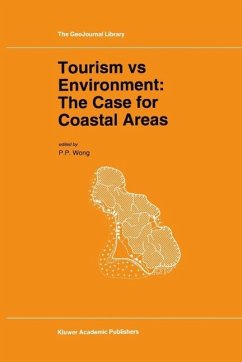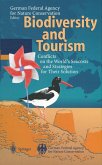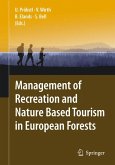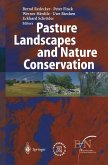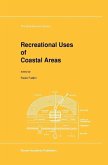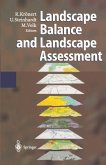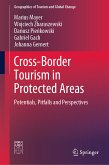P.P. Wong ABSTRACT Tourism is environmentally dependent. The unique character ofcoastal areas gives rise to a distinctive tourist development. Although accounts on the impacts ofcoastal tourism can be found in works relating to tourism in general, there are few works specifically on coastal tourism. This present volume focuses on the physical environment of coastal tourism, particularly the geomorphological aspects. The papers deal with basic aspects of the coastal environment for tourism, methodologies for assessing the coastal environment for tourism and empirical studies of various types of coastal environment with tourism development. The resultinggeneralisations are expected to be applied elsewhere. TOURISM AND ENVIRONMENT Environment has various meanings for tourism. In its broadest sense, the environment includes all natural and cultural elements as in OECD's (1981) definition to encompass the natural, built and cultural aspects. This holistic approach is encouraged in understanding the potential impacts arising from tourism. A narrower meaning of environment is the natural and built environment as used by Cohen (1978) and Inskeep (1991: 339). Environment can also be restricted to the natural or physical environment, in order to distinguish it from the economic and social aspects of tourism, as used by tourism researchers (e.g. Mathieson and Wall, 1982; Pearce, 1989). This approach is used predominantly in this volume. Various relationships between tourism and the physical aspects ofthe coast are discussed. There are basic relationships between environment and tourism. Tourism is environmentally dependent and the environment is vulnerable to the impact of tourism.
Dieser Download kann aus rechtlichen Gründen nur mit Rechnungsadresse in A, B, BG, CY, CZ, D, DK, EW, E, FIN, F, GR, HR, H, IRL, I, LT, L, LR, M, NL, PL, P, R, S, SLO, SK ausgeliefert werden.

